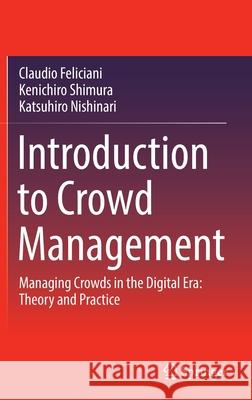Introduction to Crowd Management: Managing Crowds in the Digital Era: Theory and Practice » książka
topmenu
Introduction to Crowd Management: Managing Crowds in the Digital Era: Theory and Practice
ISBN-13: 9783030900113 / Angielski / Twarda / 2022 / 324 str.
Introduction to Crowd Management: Managing Crowds in the Digital Era: Theory and Practice
ISBN-13: 9783030900113 / Angielski / Twarda / 2022 / 324 str.
cena 563,56
(netto: 536,72 VAT: 5%)
Najniższa cena z 30 dni: 501,19
(netto: 536,72 VAT: 5%)
Najniższa cena z 30 dni: 501,19
Termin realizacji zamówienia:
ok. 16-18 dni roboczych.
ok. 16-18 dni roboczych.
Darmowa dostawa!
Kategorie:
Kategorie BISAC:
Wydawca:
Springer Nature Switzerland AG
Język:
Angielski
ISBN-13:
9783030900113
Rok wydania:
2022
Ilość stron:
324
Waga:
0.63 kg
Wymiary:
23.39 x 15.6 x 1.91
Oprawa:
Twarda
Wolumenów:
01
Dodatkowe informacje:
Wydanie ilustrowane











